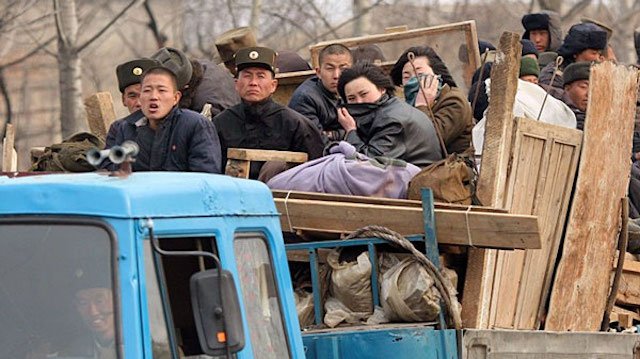North Koreans are increasingly leaving their homes and fleeing to remote mountains in the country to avoid forced labor and mandatory contributions to the regime of Kim Jong Un.
One source in Chagang province told Radio Free Asia, “They are poor people who don’t have seed money to start a business and who cannot financially support themselves. They are running away from authorities’ interference [in their lives], forced mobilizations, and required offerings [to the state].”
North Korean authorities reportedly monitor the general public to ensure their loyalty to Kim Jong Un and require urban residents to provide unpaid labor in constructing monuments dedicated to North Korea’s leaders.
Radio Free Asia reports:
Many resent the mass mobilizations because of the unpaid labor and goods they must contribute in a show of enthusiasm and support for the regime, and believe that some of the projects they contribute to are irrelevant to their own lives and well-being.
“The mountains of Chagang province are deep and steep, so it’s easy for people to hide and live there,” he said, adding that the terrain makes it difficult for security agents to find them.
It is only when authorities discover that people who are registered at a specific address are not living there that they send local security agents to look for them, he said.
“Those who are caught are told to register their place of residence and join a local people’s unit so they can be monitored, though they try their best to avoid registration,” the source said.
It is believed that those living in remote mountains include North Koreans of all ages — infants, students, young couples, and elderly people.
“Though they don’t have enough food and they are isolated from civilization, they are free from mobilizations and the burden of [mandatory] offerings,” RFA’s source explained.
“They live with no monitoring and no interference from the authorities, so the number of people who abandon their homes and live in the deep mountains will not decrease,” he added.







Freedom United is interested in hearing from our community and welcomes relevant, informed comments, advice, and insights that advance the conversation around our campaigns and advocacy. We value inclusivity and respect within our community. To be approved, your comments should be civil.
Why don’t Amnesty International and IFAW go into that county